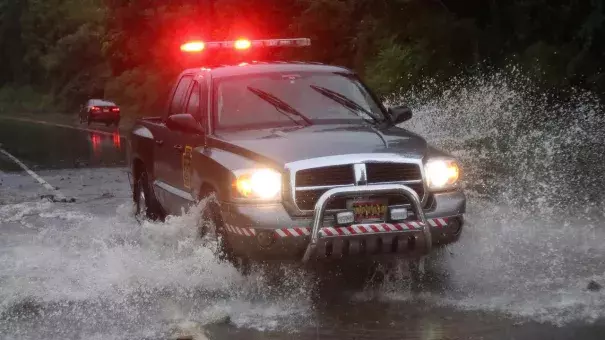Flooding, Heat Waves and Deadly Wildfires This Week: Are They Linked to Climate Change?

Meteorologists and climatologists have made it clear that it is difficult to connect singular weather events to climate change.
However, trends and patterns clearly point to a correlation between global warming and extreme weather.
From deadly wildfires in Greece to heat waves in Japan, Europe and in the western U.S. to flooding and mudslides in the mid-Atlantic and Laos, the extreme weather this week has been trying and heartbreaking for many.
A report published last year by the National Academies noted that "in the past, a typical climate scientist’s response to questions about climate change’s role in any given extreme weather event was, 'We cannot attribute any single event to climate change.'
"The science has advanced to the point that this is no longer true as an unqualified blanket statement," the report said. "In many cases, it is now often possible to make and defend quantitative statements about the extent to which human-induced climate change ... has influenced either the magnitude or the probability of occurrence of specific types of events or event classes."
Heidi Cullen, chief scientist for Climate Central and head of the World Weather Attribution program, compared the report's significance to another scientific breakthrough in the 1960s that changed the world.
"Like the surgeon general’s 1964 report connecting smoking to lung cancer, the report from the National Academies connects global warming to the increased risk and severity of certain classes of extreme weather, including some heat waves, floods and drought," she said.
The increasing frequency and intensity of heat waves are among the most obvious and well-documented effects of climate change, meteorologist Jeff Masters of Weather Underground told weather.com.
"The bottom line is that global warming has made heat waves like those experienced this July much more likely to occur," Masters said.


